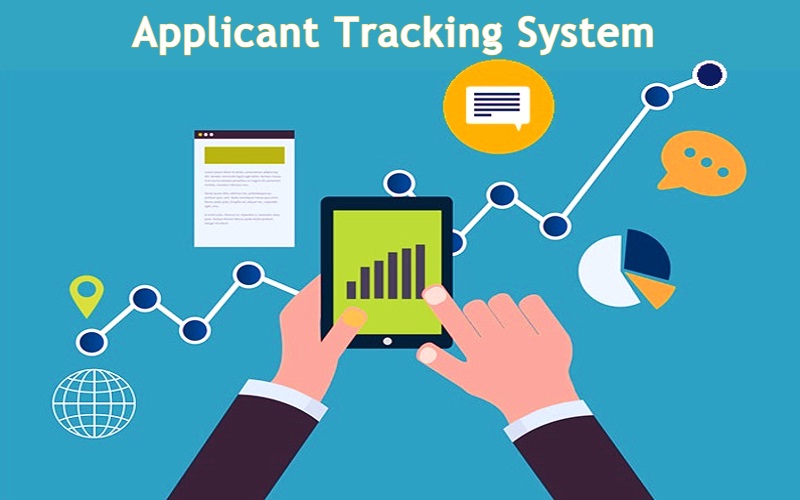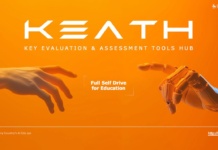
(How technology is unblocking opportunities to all graduate roles irrespective of degrees)
Securing your first job after graduation has become increasingly challenging in the UK’s competitive job market. With the transformation of recruitment processes through artificial intelligence (AI) tools and Applicant Tracking Systems (ATS), graduates must adapt their approach to stand out.
Drawing from the expertise of Wall Street Journal Bestselling author – Professor Chris Imafidon, chair of Excellence in Education programme, here are the secrets to a successful job search and application process.
Understanding the Modern Recruitment Landscape
The traditional hiring process has undergone a significant transformation in recent years. Employers now rely heavily on AI-powered tools and ATS to streamline their recruitment efforts. These technologies scan and filter applications before they ever reach human eyes, making it crucial for graduates to optimize their applications accordingly.
The Role of ATS (Why employers no longer read your CV or resume)
Applicant Tracking Systems are designed to parse CVs and cover letters, searching for specific keywords and phrases that match the job description. This means that even highly qualified candidates may be rejected if their applications don’t contain the right keywords or formatting. This is done without employers ever reading one word of applicant’s CVs or resumes.
AI in Recruitment
Beyond ATS, AI tools are now being used to conduct initial interviews, assess candidate personalities, and even predict job performance. These technologies analyze everything from facial expressions and tone of voice to written responses, adding another layer of complexity to the application process.
Secrets to Success in the AI-Driven Job Market
1. Optimize Your CV for ATS
- Use a clean, simple format without complex graphics or tables
- Incorporate relevant keywords from the job description naturally throughout your CV
- Use standard section headings (e.g., “Work Experience,” “Education”) for easy parsing
2. Craft a Compelling Online Presence
- Create a professional LinkedIn profile that mirrors your CV
- Use industry-specific keywords in your LinkedIn headline and summary
- Engage with relevant content and join professional groups in your field
3. Tailor Your Application for Each Role
- Customize your CV and cover letter for each application
- Highlight experiences and skills that directly relate to the job requirements
- Use the same language and terminology found in the job description
4. Develop In-Demand Hard and Soft Skills
- Identify skills gaps in your chosen industry and work to fill them
- Consider taking online courses or obtaining relevant certifications
- Highlight both technical and soft skills in your application
5. Prepare for AI-Driven Interviews
- Practice video interviews to become comfortable with the format
- Be aware of your body language and tone of voice
- Prepare concise, structured responses to common interview questions
6. Network Strategically
- Attend industry events and career fairs
- Reach out to alumni from your university working in your desired field
- Use informational interviews to gain insights and make connections
7. Showcase Your Achievements
- Quantify your accomplishments wherever possible
- Use action verbs to describe your experiences
- Highlight projects or initiatives where you demonstrated leadership or problem-solving skills
Overcoming Frustration in the Application Process
Many graduates become frustrated when their applications are repeatedly rejected or ignored. HR experts emphasize the importance of persistence and continuous improvement in your job search strategy.
Conduct a Self-Assessment
- Honestly evaluate your skills and experiences
- Identify areas where you may be falling short of employer expectations
- Seek feedback from career advisors or industry professionals
Gain Relevant Experience
- Consider internships or volunteer work in your chosen field
- Take on freelance projects or part-time roles to build your portfolio
- Participate in industry-related competitions or hackathons
Refine Your Personal Brand
- Develop a clear, concise elevator pitch about your skills and career goals
- Ensure consistency across all your professional platforms and documents
- Create a personal website or portfolio to showcase your work and achievements
Leverage Professional Help
Many organisations can provide invaluable assistance in navigating the complex job market. They offer:
- Personalized coaching on CV writing and interview techniques
- Insights into industry-specific recruitment practices
- Strategies for overcoming common obstacles in the job search process
The Interview: Your Chance to Shine
Once you’ve secured an interview, it’s crucial to make the most of this opportunity. Recruiters recommend:
- Thoroughly research the company and role
- Prepare specific examples that demonstrate your skills and experiences
- Practice answering common interview questions using the STAR method (Situation, Task, Action, Result)
- Prepare thoughtful questions to ask the interviewer about the role and company
Embracing Continuous Learning
The job market is constantly evolving, and so should your skills and knowledge. Stay informed about industry trends, continue to develop your skills, and be open to feedback and new opportunities. By following these strategies and insights from HR experts, you can significantly improve your chances of landing that crucial first job. Remember, persistence and adaptability are key in today’s AI-driven job market. With the right approach and mindset, you can overcome the challenges and launch your career successfully.
Leveraging LinkedIn and AI Tools for Graduate Job Success
Professor Chris Imafidon, chair of Excellence in Education, emphasizes that LinkedIn and AI tools are indispensable for graduates seeking their first job in today’s competitive market. His approach focuses on harnessing these technologies to stand out and secure employment opportunities.
The Power of LinkedIn in Job Search
Professor Imafidon stresses that LinkedIn is not just a social network, but a crucial platform for professional visibility and networking. He advises graduates to:
- Optimize their LinkedIn profile with industry-specific keywords
- Engage regularly with relevant content in their field
- Build a network of professionals and alumni in their target industry
- Showcase projects, internships, and academic achievements
Embracing AI Tools in the Application Process
According to Professor Imafidon, understanding and utilizing AI tools is critical for success:
- ATS-friendly CVs: Use AI-powered CV optimization tools to ensure your CV passes Applicant Tracking Systems
- AI-powered job matching: Leverage platforms that use AI to match your skills with job openings
- Interview preparation: Use AI-driven interview simulation tools to practice and improve your performance
- Skill gap analysis: Employ AI tools to identify and address skill gaps in your profile
Developing an AI-Enhanced Personal Brand
Professor Imafidon advocates for creating a strong personal brand using AI:
- Use AI writing assistants to craft compelling LinkedIn posts and articles
- Analyze successful profiles in your industry using AI tools to inform your own strategy
- Utilize AI-powered analytics to understand your profile’s performance and visibility
Continuous Learning and Adaptation
Professor Imafidon emphasizes the importance of staying current:
- Follow AI trends in your industry and incorporate relevant skills into your profile
- Participate in online courses and certifications related to AI in your field
- Showcase your adaptability and willingness to embrace new technologies
By following Professor Imafidon’s approach of fully embracing LinkedIn and AI tools, graduates can significantly enhance their job search strategy and increase their chances of landing their first role in an increasingly competitive and technology-driven job market.










